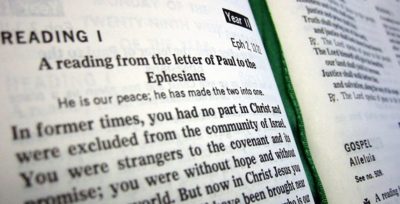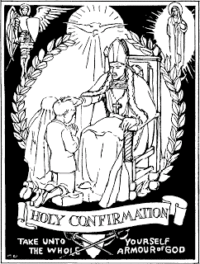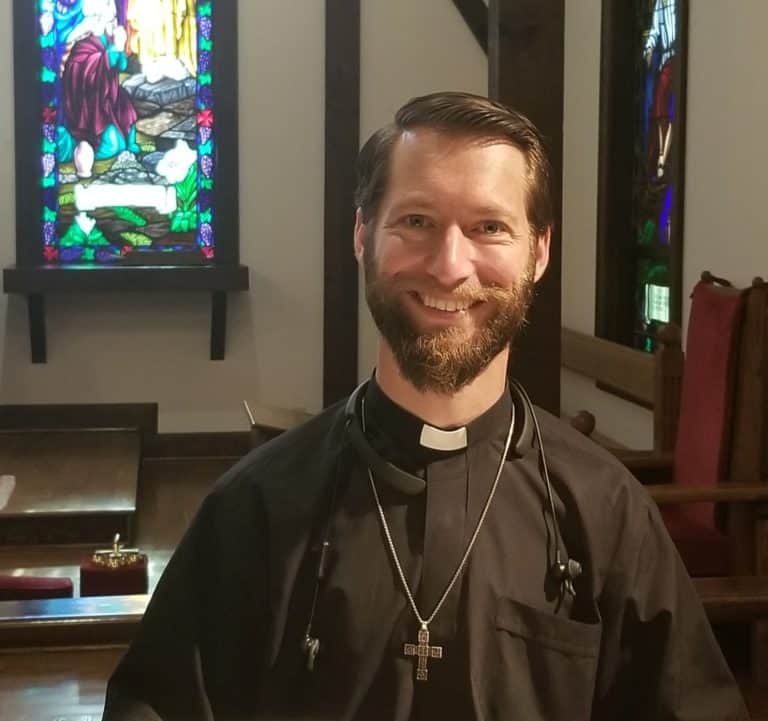Oh God, What’s Going On?
The following is written by one of our talented members. It discusses directly the root problem of today’s society and world. On Denise’s website, you will find other inspirational writings that give the views of a devout Christian who is simply offering her talents to the Lord and His Church.
Her website is www.beltoftruthmagazine.com and there is an audio version.
In the midst of one of America’s most turbulent eras, a soul singer by the name of Renaldo Benson climbed aboard a bus with his fellow musicians from the Four Tops for just another day on the job. Little did he know that he would witness something that would deeply affect how he perceived not only the world but his place in it as a musician. It was 1969, and as Benson looked out the window, he witnessed police officers unleashing a maelstrom of brutality and violence on anti-war protestors. The scene troubled Benson, and a question repeated over and again in his mind: “What’s going on, what’s happening here?” Over time, his thoughts expanded, causing him to wonder about the Vietnam War itself, its significance, the national tumult surrounding it, and mounting hostilities that turned brother against brother in the once-peaceful streets of America.
Benson’s musings eventually found fruit in music as he collaborated with singer Marvin Gaye to write a song that expressed his feelings. Together, they produced one of Gaye’s most popular hits, “What’s Going On?” The album departed from Gaye’s typical love songs and entered the realm of political protest, particularly against a war that had ripped the fabric of America’s social scene into pieces. Benson’s original question was born of genuine confusion about why such terrible travesties were happening on American soil. It became a rally cry of sorts—at least to Gaye who put the final lyrical touches on the song—and evolved into a wake-up call to those unaware of just how bad things had gotten in the land of the free.
What’s Happening?
The sentiments of this song can no doubt be felt today by those who look at our nation and wonder at the conflict, polarization, hostilities, and division. The question, “What’s going on?” will be answered differently, of course, depending on the political, cultural, and religious points of view of those asking it. One thing they all have in common, however, is something’s wrong in our nation, something insidious, something destructive. We could spend pages analyzing the various secular movements competing to make their version of “woke consciousness” the dominant worldview. Instead, we’ll focus on the church because it is very much a part of the turbulence.
Christians, too, are asking, “What’s going on?” They ask it when they see God erased from education. They ask it when preachers are told they must close their churches for a virus that kills less than half a percent of the population (if that) while liquor stores and Target remain open. They ask it when sexual identity is redefined as anything someone perceives it to be. They ask it when girls think they can transition to boys and boys can transition to girls. They ask it when marriage is no longer defined as a covenant before God between a man and a woman but is now any two people who “love” each other. The list could go on and on, covering ground from science that is no longer science but mere consensus, to philosophies that eradicate the existence of God, to economic systems that promote dependency on the state rather than individual responsibility before God, and to a Constitution that has become merely a suggestion without any force of moral authority, law, or rights that come from the Creator.
The church itself isn’t immune to the chaos and confusion. In it, we find many things to question, to wonder “What’s going on?” Celebrity preachers are on the rise with their million-dollar homes, catchy church labels, slick back-up bands, and buff bodies manscaped to perfection. Doctrines are as diverse as the stars in the sky, and most accepted as legitimate because a syrupy notion of “love and acceptance” takes precedence over truth. Money flows while the poor are neglected. Worship has become entertainment. Preaching has become inspirational programming. The Bible is a matter of opinion, not truth. In some corners, women exert themselves to positions of power, rejecting God’s doctrine of male headship, while in others, men lord over women as lesser creatures, “temptations” to be avoided and ushered away to separate learning spaces where they’re treated as little more than children. Individuals fill the church with no thought of responsibility to the larger body, while, in other places, church “collectives” rule over individuals without respecting that the consciences of each person should be bound, not by weaker, bullish brethren, but by Christ alone. Salvation has been reduced to man’s will, pushing God off of His sovereign throne and sinful man onto it. Church pews are filled with unrepentant drunks, adulterers, homosexuals, fornicators, gluttons, liars, and gossips (just to name a few)—and they’re all deemed either “not so bad because no one should judge” or outright good “because God has made them that way.” Few are challenged to change, to repent, to mortify their sin, to examine themselves, to be holy as God is holy, to be different from lost sinners hellbent on going their own way.
The world is in chaos, and the church along with it. Conflict and strife abound, and Christians—at least those with a semblance of a tender conscience—are wondering what’s going on. Why are all these bad things happening? In particular, why is the church under siege? It seems so weak today and vulnerable to subversive and false interpretations of Scripture. Christians can’t speak freely in the workplace, at school, or even in churches themselves. Corporations inundate their employees with training and propaganda about promoting tolerance, exposing “unconscious biases,” and creating safe places for all employees, yet Christians find their workplaces are anything but safe—at least for anyone who holds to biblical truth about human nature and God’s authority over the world. A new kind of war has been unleashed against the church—one that questions the very identity of man—and many Christians are perplexed. They aren’t losing their faith. They know God is in control, but they’re wondering, “What’s going on, and what do we do about it?”
How like Joshua, as he stood on the precipice of the Promised Land, are some Christians today. After decades of wandering in the desert, the Israelites were about to cross Jordan into the land God promised to Moses. They were excited and confident in the Lord that they would finally experience peace and prosperity. Moses was no longer with them, having been kept from the new land by God because of his disobedience, but they had a new leader in Joshua, and they knew God would see them through to the end of their journey. After all, God had told Joshua that they were not to fear because Israel would inherit the land God promised. To an expectant people, the Lord declared,
“Only be strong and very courageous, being careful to do according to all the law that Moses my servant commanded you. Do not turn from it to the right hand or to the left, that you may have good success wherever you go. This Book of the Law shall not depart from your mouth, but you shall meditate on it day and night, so that you may be careful to do according to all that is written in it. For then you will make your way prosperous, and then you will have good success. Have I not commanded you? Be strong and courageous. Do not be frightened, and do not be dismayed, for the Lord your God is with you wherever you go.” (Joshua 1:7-9)
Israel was God’s chosen people. They had faced slavery, torture, starvation, defeat, ridicule, and brutality in the world, but God had saved them from their enslavement, setting them free from their bondage. All He asked of them was to obey His law, to be conformed to His image, to repent of their sins, and be holy as He is holy. Why? Why put this requirement on them, and, more significantly for us, what does this have to do with Christians today who have been saved, not of works and obedience to the law, but by the grace of God through faith in Christ?
Set Apart for God
To understand what is going on in this passage, we must first answer the question, Why are we saved? What does it all mean? Is it just to get to heaven and not go to hell? Is it to be happy? Is it only to be free of sin and all the pain that comes with it? What’s the purpose of God’s salvation? You might be surprised by how many Christians don’t really think about this. But it’s key to understanding the Christian life. God saved us so we can be in close relationship with Him. He created the world to be in communion with Him. When man fell, that communion was severed, that relationship broken. God, in His mercy and abounding love, made a way for that relationship to be restored. Everything about salvation, obedience, faith, repentance, and worship is about intimacy with God, which He alone made possible through the sacrifice of Jesus Christ.
That might seem obvious enough, but we have to go further and ask, “What does that relationship look like? What is the essence of it?” Being in relationship with someone requires change and adaptation. Anyone who is married knows this. In little and big ways, we change to be “in the presence” of the one we love. When this is done in the right way about the rights things, both are made better. Of course, in our “marriage” with Christ, we are the only ones who do the adapting and changing. That’s because our Lord is perfect, and we must reflect that perfection because we are now “one.”
Our relationship with God isn’t like any relationship we know in this world because no one and nothing is like God. Our heavenly Father is perfect, holy, righteous, and pure. To be in a relationship with Him means to come into the presence of the Holy. As Christians, we are invited into the throne-room of God, and to be in that holy space, we too must be holy. This is why God demands perfection, purity, and holiness from His people. In His holiness, He is utterly and wholly different from anything in this world. If we are to be joined with Him, one with Him, part of His intimate family, then we too must be perfect. This was true for the Israelites, and it is true for us today.
We might think, at first glance, that God required obedience of Israel because they had to keep His law to be saved. This is not true. His requirement of obedience and perfection was not because they had to earn their salvation. It was because He had set them apart to be holy, and these were His directives on how they were to be just that. Their salvation was not by “works.” They didn’t earn His grace any more than Christians earn His grace today. God had promised to save Israel before any of these people standing beside the Jordan had been born. They were Abraham’s children, and as Abraham’s children they were children of the Promise, not on account of anything they had done, but because of God’s electing grace that He bestowed on them by choosing Abraham to be the father of many nations. As Paul writes in Romans,
“For if Abraham was justified by works, he has something to boast about, but not before God. For what does the Scripture say? ‘Abraham believed God, and it was counted to him as righteousness.’” (Romans 4:2-3)
Paul goes on to explain that obedience to the law, which is referenced here as “circumcision,” did not save Abraham or any of the Jews. Their salvation was always of faith. Abraham’s faith came before he was circumcised, not after, and “all who walk in the footsteps of the faith that our father Abraham had before he was circumcised” (v. 12) have righteousness that comes through faith counted to them.
“For the promise to Abraham and his offspring that he would be heir of the world did not come through the law but through the righteousness of faith…. That is why it depends on faith, in order that the promise may rest on grace and be guaranteed to all his offspring—not only to the adherent of the law but also to the one who shares the faith of Abraham, who is the father of us all, as it is written, ‘I have made you the father of many nations’—in the presence of the God in whom he believed, who gives life to the dead and calls into existence the things that do not exist.” (Romans 4:13-17)
As you can see, we can’t say that the Israelites had to “earn their salvation.” It was given to them by grace through faith. They couldn’t be made perfect by works any more than we can. Yet they were “perfected” by being set apart, just as we are “perfected” by being set apart. Of course, despite these similarities, there are differences between Israel of old and the church today. Abraham, after all, was not Jesus Christ. It is not our purpose here to go into all those differences. Suffice it to say, that when it came to sacrifices and the people’s ability to be in the presence of God, the Israelites still had mediators between them and God. They still could not go into the presence of the Holy without a high priest interceding for them. However, we must not look at this passage as if there is no grace here and no faith on the part of the people. It was there, just in shadows while the church today sees more by the light of the Cross.
A New Relation, A New Identity
Like Christians today, the Israelites were the children of promise—God’s promise. This means that He had set them apart from the rest of the world. They were “sanctified” and “consecrated” by Him and for Him. This doesn’t mean that they were each actually sanctified in the sense of being righteous people and no longer sinning. They were sinners like the rest of us. Sanctified has several meanings in Scripture. In this instance, it means “set apart.” It doesn’t mean each person had been transformed to be righteous. This point is significant to the Christian because we too are set apart by God when we are called, regenerated (born again), and justified (declared righteous) by God. This is a one-time act by God the Father, which is based on the sacrificial death of Christ on the Cross—a sacrifice that satisfied God’s holy justice.
This act of God changed our standing with Him, our relation to Him. In an objective, legal, and relational sense, we as new believers—and throughout our whole life in this world with all its defeats and victories—are “set apart” by God. We are “sanctified” or “made just” by Christ because He has determined that we are no longer a part of the world, but one with Him and His people. We no longer live in the dirty streets of a decadent and fallen creation. We live in the City of God, with its purity, glory, and holiness. We’re still our sinful selves at the beginning, as we set out on the long, often-difficult journey to be made actually righteous through the daily work of the Spirit and our cooperation with Him. But we, as it were, are in a different place. Our residence has moved. Our family name has been changed. Our identity is now in Christ. We have been moved from one state of being to another. We have been taken out of the grave and set on the path to glory. We were lame and bent by the well, begging for food, and God healed us and told us to get up and walk—to live a new life. This act of God means the Christian life is supposed to look very different from the lives of unbelievers.
When the Father plucks us out of the world and renews our deadened hearts, He establishes us as a new creation with a new relation not only to Himself as the redeemed, but to the world and to the unredeemed. As God’s people we are to be intimate with Him, devoted to Him, and surrounded by interests and activities that honor Him. This means that, as God’s people, we are not to be intimate with the wicked, devoted to worldly pursuits, and surrounded by things that dishonor Him. Think of David’s description of the redeemed in Psalm 1:
“Blessed is the man
who walks not in the counsel of the wicked,
nor stands in the way of sinners,
nor sits in the seat of scoffers;
but his delight is in the law of the Lord,
and on his law he meditates day and night.” (Psalm 1:1-2)
That’s supposed to be you, if you’re a Christian. Jesus, who equated obedience to His commandments with loving Him in intimate unity (John 14:21), described how Christians are to be different from the world:
“Blessed are the poor in spirit, for theirs is the kingdom of heaven. [The unredeemed are puffed up in spirit, for their kingdom is this world, which is passing away.]
Blessed are those who mourn, for they shall be comforted. [The unredeemed celebrate, laugh, and live as if there’s no tomorrow. They need no comfort.]
Blessed are the meek, for they shall inherit the earth. [The unredeemed are proud, but they will only inherit the grave.]
Blessed are those who hunger and thirst for righteousness, for they shall be satisfied. [The unredeemed hunger and thirst for money, fame, glory, sex, entertainment, distraction, worldly comforts, and instant gratification. They are never satisfied.]
Blessed are the merciful, for they shall receive mercy. [The unredeemed are graceless, unable to show true mercy, and so they will receive none.]
Blessed are the pure in heart, for they shall see God. [The unredeemed are wicked in heart, and they cannot come into the presence of God.]
Blessed are the peacemakers, for they shall be called sons of God. [The unredeemed are at war with God and are not members of His family.]
Blessed are those who are persecuted for righteousness’ sake, for theirs is the kingdom of heaven. [The unredeemed persecute those who stand for righteousness for their kingdom is of this world and they will do whatever it takes to keep it. They silence true believers, mock them, cancel them, and seek to destroy them. They will receive no reward. Only death.]
Blessed are you when others revile you and persecute you and utter all kinds of evil against you falsely on my account. Rejoice and be glad, for your reward is great in heaven, for so they persecuted the prophets who were before you.” (Matthew 5:1-12)
This description of “the blessed” is what it looks like to be set apart, or sanctified, by God. And this was what it meant for the Israelites as they stood beside the Promised Land. Purity was God’s expectation and requirement, not as the basis for their ultimate salvation, but because being obedient to Him, meditating on His law and not the ways of the world, and setting their feet on His path was what it meant to be one of God’s chosen people.
This “separateness” is simply logical. We should look and behave differently if we are Christians. If you are a teacher, are you not expected to teach? If you are a physician, are you not expected to heal? If you are a scientist, are you not expected to know science and perform scientific experiments with all the knowledge that entails? Can you call yourself a teacher if you don’t teach, don’t know how to teach, never study to teach, and never enter a classroom? The same with a physician or the scientist. How, then, can you call yourself one of God’s children if you never bear any of the characteristics of being a child of God, if you never study His word, never enter His worship, never commune with His people, never pray, never resemble Him in any real way? This difference isn’t simply internal and private. It shows. It is evident. It is a testimony of a spiritual reality. There is no “private faith” hidden within the folds of Christianity. Its light shines in the darkness. If someone looks at your life, and they cannot distinguish it from the lives of unbelievers around you, how can you know for certain that you are even a redeemed child of God? Where is the fruit by which the tree is known?
No Impurity in God’s Presence
Sadly, this is the state of too many Christians today. They do not live as those set apart by God. Instead, they either sit squarely down in the middle of sin and wickedness or skip around its edges plucking its rotten fruit while trying to pass themselves off as believers. Charles Spurgeon in his 1885 sermon “Foundation and Its Seal: A Sermon for the Times,” eloquently describes such a person.
“How many professors appear to know nothing of the real force and energy of the Spirit of God in subduing sin and creating holiness! Theirs is a shallow life. Alas, how much they lose! They come under the obligations of the house of God, but they do not know the infinite privileges of that house. It is for the truly spiritual that God reserves the choicest of His dainties. Be half a Christian, and you shall have enough religion to make you miserable; be wholly a Christian, and your joy shall be full. Walk with God in the light as He is in the light, and you shall have fellowship with Him, such as shall make earth akin to heaven. Take a little light and a little darkness and attempt to make a mixture of them; seek to join the church and the world, and you shall have neither the pleasures of the world nor the comforts of the Spirit. It is a pity for a man to miss joys which an angel might covet!”
It is a pity—and a shame, as Israel discovered. God had promised victory and peace to His people, but something went terribly wrong. Joshua sent men into the land God had promised, and, to his astonishment, the Israelites were turned back and many killed by “the men of Ai.” As a result of this defeat, the hearts of the people, which were supposed to be strong and courageous, “melted and became as water.” How like Christians today, who see the struggles of the church, and they lose their confidence. Their hearts melt and become as water.
“What’s going on?” Joshua asked. “This isn’t what’s supposed to be happening? Why the success of our enemies?” How often have we cried out in the same way when we face difficulties, setbacks, and trials? How many times have we responded as Joshua, who tore his clothes and fell before the ark of the Lord, begging for an explanation.
God answered, and it should make us all tremble.
“Israel has sinned; they have transgressed my covenant that I commanded them; they have taken some of the devoted things [accursed things, KJV]; they have stolen and lied and put them among their own belongings. Therefore, the people of Israel cannot stand before their enemies. They turn their backs before their enemies, because they have become devoted for destruction [they have been made liable to destruction, NIV]. I will be with you no more, unless you destroy the devoted things from among you. Get up! Consecrate the people and say, ‘Consecrate yourselves for tomorrow; for thus says the Lord, God of Israel, “There are devoted things in your midst, O Israel. You cannot stand before your enemies until you take away the devoted things from among you.” (Joshua 7:11-13)
You want to know what was going on? Disobedience. Sin. Unfaithfulness. God’s people, who were supposed to separate themselves from those things He deemed unholy, had taken them into their private space. One man in particular had done it, but the responsibility of the act fell on the whole nation, and the whole nation felt His hand of judgment. How many of us, in such times of trial, fail to realize through self-examination, that the cause might be our own disobedience, our own unfaithfulness? You have trouble in your marriage. Have you failed to be faithful? You have trouble at work. Are you more devoted to worldly things than God? You’re depressed and anxious. Have you failed to rest in God? Now, this is not to say that all struggles are the direct result of disobedience and attaching yourself to worldly things, but times of trial are times for self-examination. Oftentimes, we discover the rot there, and the reason we are suffering consequences is we have been living as the world and not as a child of God.
The truth is that there will be consequences when God’s people do not separate themselves from that which is unholy. This is as true today as it was in Joshua’s time—not in the same way, theologically and within the arc of God’s redemptive plan, but in a very practical way regarding our intimate relationship with God—and with one another. Because Christians are too often more focused on the things of this world than heavenly things, than on spiritual things, they often fail to take seriously what it truly means to be set apart by God to be in a relationship with Him. We sing songs about walking with Jesus and coming into God’s presence. We pay lip service to being God’s child and a member of His family. But we don’t often stop to contemplate what that means. If we did, most of us would be on our faces before God, begging for forgiveness because we have failed to honor His holiness and majesty.
The reality is God is holy, and this world, in its broken, fallen, wicked state, is not. If you are not with Jesus, you are against Him. You either love God or you love the world. If you are not the light, you are darkness. If you are not alive through grace, you are dead in your sins. There’s no “in-between” when it comes to living in God’s presence in intimate communion with Him. Why? Because God is perfectly holy. Nothing can come into the presence of the holy except that which is holy.
Our feeble imaginations can’t truly grasp what this means, but we can try. God is a pure fire, and nothing can stand in His presence except pure fire without being burned up. God has set us apart to be pure fire, to be pure light, as He is pure light. We are part of His intimate circle, His family. We are in a dynamic, living relationship with Him and we affect each other, as is the case with all relationships. When we bring into our personal space and into our relationship that which corrupts that light and diminishes that fire, we are bringing impurity into God’s presence because we, as believers, live in His presence as His children. His only response to that corruption is to burn it up, destroy it—that’s not even a “choice” on His part. It is His nature. Chaff burns in the flame. The flame doesn’t even have to choose to do it. That’s what happens to impurity among God’s people. If you are really His, He burns it up. He destroys it. He has to, because you are one with Him, and such corruption can’t abide with Him.
Covered by Grace
We need not despair, however, because God is a gracious Father. As Christians, we are covered by the blood of Christ, as He has atoned for our sins and intercedes for us daily at the throne of God. When we sin, when we fail, we can turn to Him and be forgiven, and God is quick to forgive. We have a High Priest whose sacrifice is worthy and has satisfied God’s perfect justice.
Christ’s imputed righteousness, however, does not mean that we continue to sin so that grace may abound. Imputed righteousness in justification should never be confused with some kind of imputed sanctification in our daily lives. We are forgiven and legally justified before God, but the work of sanctification that is essential to being a new creature in Christ must be done—in obedience and in cooperation with the Spirit. This daily sanctifying work (unlike the one-time “setting apart” consecration and “sanctification” that God the Father does for us) is the outworking of what God has done in us. The dead who have risen don’t just lie in their tombs. They get up and walk and live a new life. The Christian life is not just about avoiding judgment and ultimate condemnation, which Christ’s work on the Cross has freed us from, but being in relationship with our heavenly Father and glorifying Him—every single day. Christ has saved us—and nothing will change that—but we are still to be holy as He is holy because we are in a relationship with Him. We are to come out of the world and live as children of God, not as children of men. Paul addresses this point when he wrote to the Corinthians who had much sin among them. He urges them to live as a consecrated (sanctified) people, not indulge their sin because they think the work of salvation is finished and they can go on living as unredeemed sinners, playing among them, imitating them, and pleasing them:
“Do not be unequally yoked with unbelievers. For what partnership has righteousness with lawlessness? Or what fellowship has light with darkness? What accord has Christ with Belial? Or what portion does a believer share with an unbeliever? What agreement has the temple of God with idols? For we are the temple of the living God; as God said,
‘I will make my dwelling among them and walk among them,
and I will be their God,
and they shall be my people.
Therefore go out from their midst,
and be separate from them, says the Lord,
and touch no unclean thing;
then I will welcome you,
and I will be a father to you,
and you shall be sons and daughters to me,
says the Lord Almighty.’” (2 Corinthians 6:14-18)
Paul had no problem quoting the Old Testament histories and prophets to make his point, for the same God that ruled over Israel rules over the church today. The same God who demands holiness demands it of us today. We walk by faith, by God’s grace, just as they did, but we must walk in a way that reflects who we truly are—that we are children of God, given a new life, not to continue in the old, but to walk as spiritual children, not as children of the flesh.
Let each of us examine our own lives today. How are we failing to live as children set apart to be in the presence of God? Do we really love Him, because it makes sense that if we love someone, we want to please them—and mostly we want to be with them, to do whatever it takes to remain in their presence. Think of what it feels like to fall in love. We can’t get enough of that person, and we don’t want to be away from them. We’ll do whatever we must to be by their side. Do we have that kind of love for our heavenly Father who chose us from the foundation of the world to be His child, who saved us even when we were still His enemy, who gave us a new heart, who raised us from the grave to everlasting life? What sins are we cherishing and secretly holding instead of repenting and living in holiness? What is keeping us from fellowship with Him? How are we contributing to the chaos and confusion of this world and the church through our ungodly actions, no matter how small we might think they are?
May we each get on our knees before the Lord and repent of our sins and our love of worldly things, holding on to the grace of Christ who is faithful and just to forgive every sin and resting in God who has promised to blot out our transgressions and remember them no more. From age to age, He is long-suffering and shows mercy to the penitent:
“If my people who are called by my name humble themselves, and pray and seek my face and turn from their wicked ways, then I will hear from heaven and will forgive their sin and heal their land.” (2 Chronicles 7:14)





